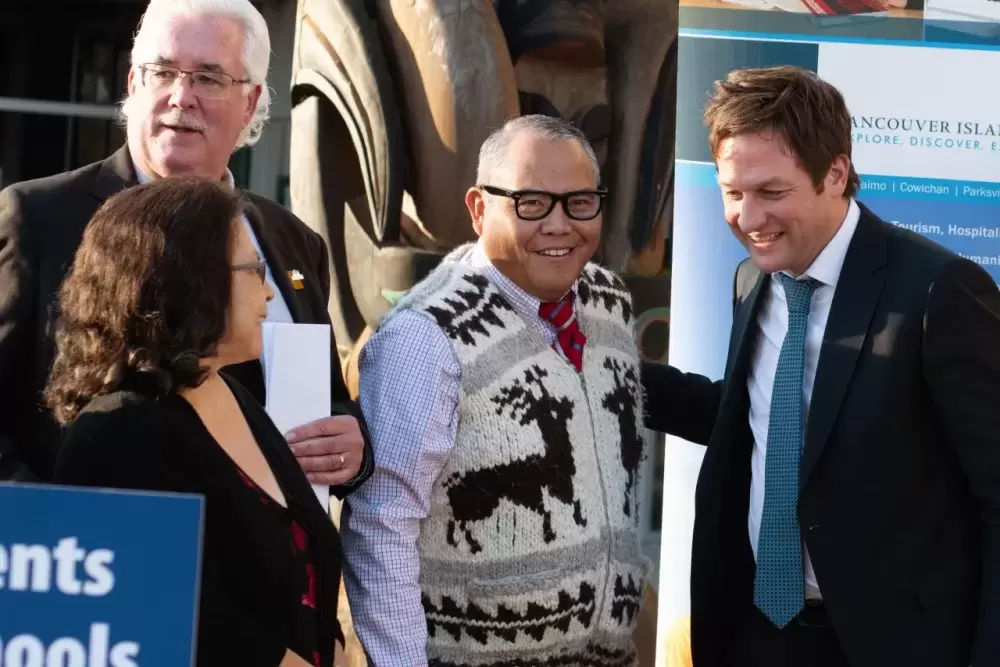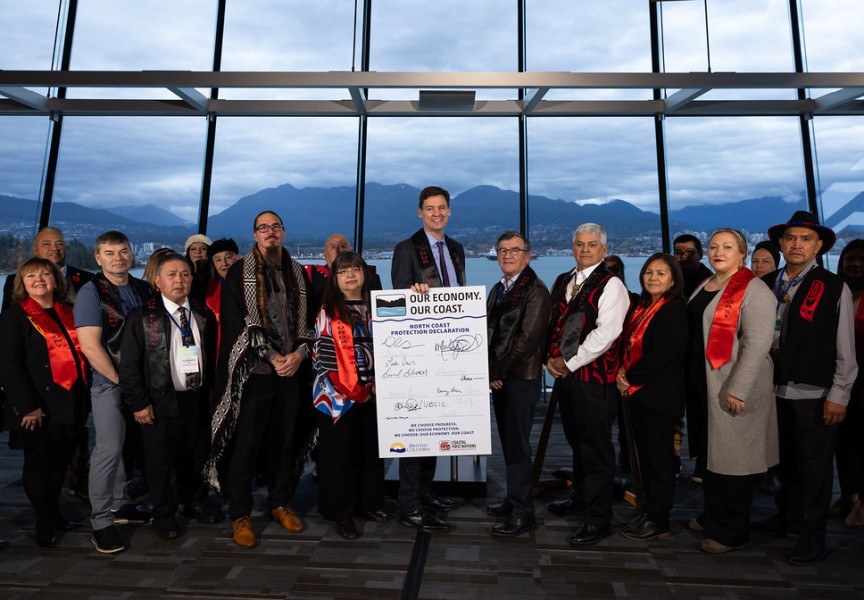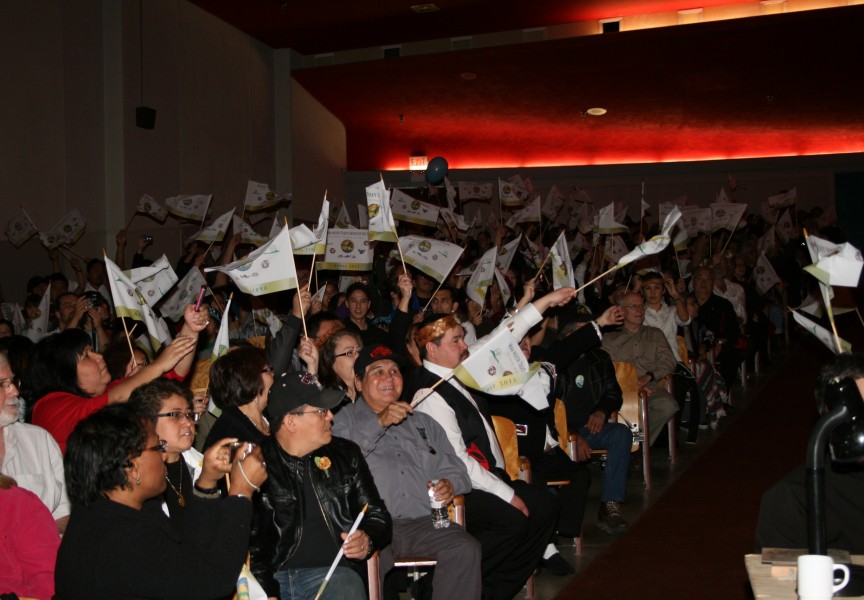Putting more Indigenous teachers in front of Aboriginal learners is the goal of new funding for Vancouver Island University’s Cowichan campus.
The provincial government announced Dec. 6 that it will allocate $65,000 to create 15 new Indigenous teacher training seats at the institution’s Cowichan campus. The university spots will be available in fall 2019.
“It’s really about creating a culture of respect,” Education Minister Rob Fleming said at a ceremony at VIU Nanaimo. “We’ve heard from many Indigenous students. They’ve told us their schools need to better reflect their unique heritage.”
Increasing Indigenous teachers is part of a strategy to improve overall educational outcomes for Aboriginal students, a long-term goal among First Nation educators, councils, trustees and administrators across the province.
In 2017-18, there were 65,269 Indigenous students enrolled in B.C. public schools, comprising 11.6 percent of the public-school student population. In the Alberni Valley, the percentage is higher with one-third of all school students identifying as Indigenous.
“To reflect the student population, B.C. requires roughly 5,000 Aboriginal teachers and so we welcome this initiative, which is consistent with B.C.'s commitments in the Aboriginal post-secondary education and training policy framework and action plan,” said Tyrone McNeil, president of the First Nations education steering committee. “Increasing the number of Aboriginal teachers is a necessary step toward supporting Aboriginal students, providing positive Aboriginal role models, and making first peoples perspectives more accessible to all B.C. students.”
Can teachers make a difference? Brianna Thorne, who has mixed Indigenous ancestry and is working towards her bachelor of education degree at VIU Cowichan, believes it does.
“I believe that incorporating Indigenous perspectives in teacher training is essential because it encourages future educators to think outside the traditional box of teaching,” said Thorne, speaking at the ceremony. “Indigenous knowledge offers students the opportunity to explore the world around them in terms of their relationship to everything on our planet. It teaches about respect, forgiveness, humility and reciprocity. Indigenous knowledge has so much to offer for both Indigenous and non-Indigenous students.”
Additional training support heeds a call to action from the Truth and Reconciliation Commission.
“Investing in Indigenous teacher education responds to a direct Call to Action of the Truth and Reconciliation Commission, No. 62,” said Melanie Mark, minister of Advanced Education, Skills and Training. “Our investment in 15 Indigenous teaching spaces at VIU’s Cowichan campus is ‘reconcili-action’ and good for children from every background. It allows Indigenous students to see themselves in their teachers, while creating critical opportunities for Indigenous educators as leaders in the education ecosystems.”
The province has funded the hiring of 3,700 additional teachers over the last year, yet there are still shortages in high-demand areas such as Indigenous education, French and special needs. To meet demands, the education ministry has added 179 new teacher-training spaces.
The new curriculum helps ensure K-12 students learn Indigenous perspectives in all grades and subjects. To increase opportunities for Indigenous teacher training, the ministry also provided $260,000 in the 2017-18 school year for B.C. universities to develop and expand Indigenous teacher education programs. With this funding, VIU will collaborate with Cowichan Tribes and others to develop a new education curriculum, ensuring more teachers are trained to bring Indigenous perspectives into classrooms.
“Cowichan Tribes is grateful for this funding opportunity, which involves Indigenous specialists and additional First Nation teachers, equipped to deal with issues relating to residential schools, as we move towards reconciliation,” said Cowichan Tribes Chief William Seymour.
“We’re not going to stop there,” Fleming said, promising more support to come for Indigenous learners. “I look forward to seeing the outcome in a very, very short period of time.”







